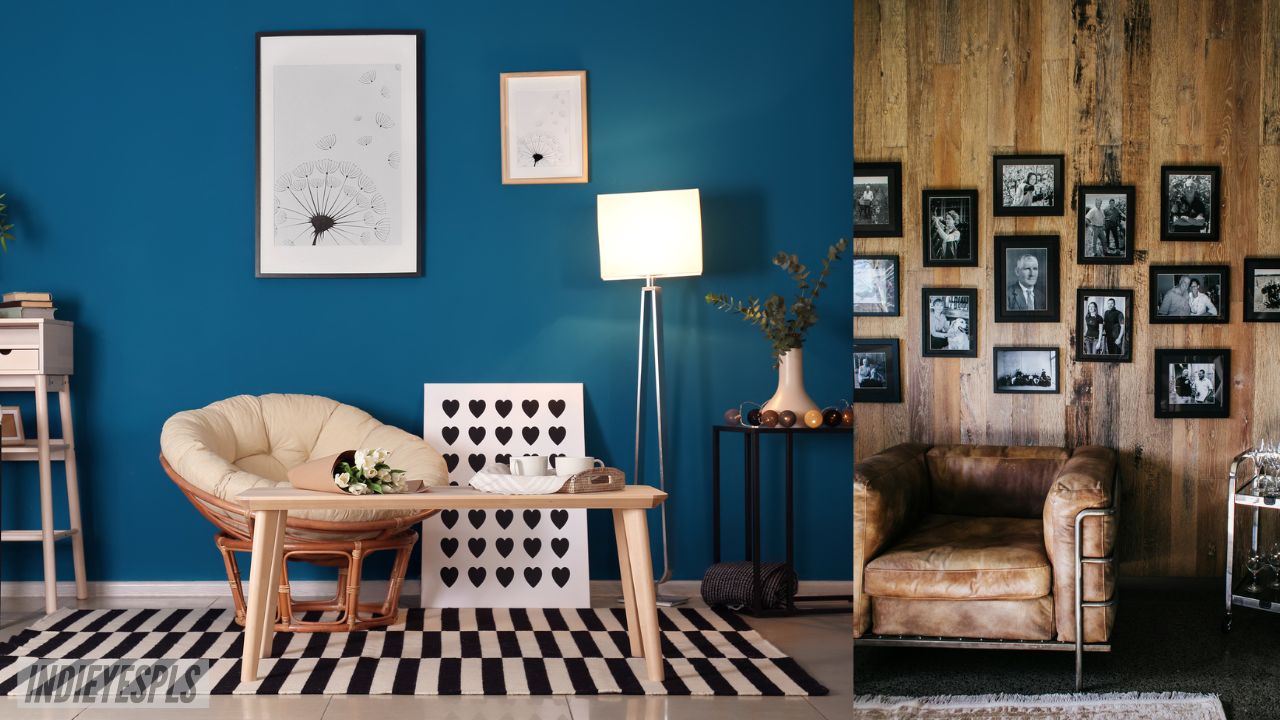7 Amazing Ways to Maximize Your Garden Space
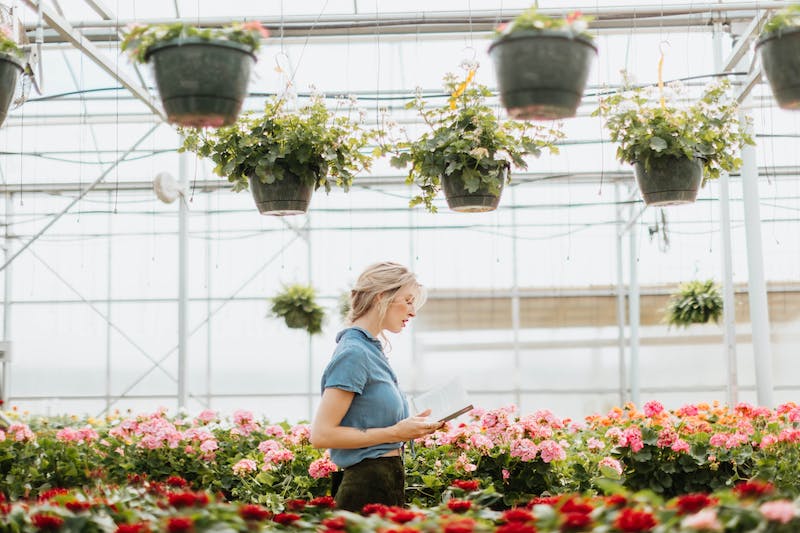
If you’re like many gardeners, you know that having a space to work with is one of the most critical steps in creating an amazing outdoor oasis. Whether it’s a window box on your balcony or acres of rolling hills near your home, maximizing the potential of your gardening area can make all the difference when it comes to creating lush and vibrant gardens.
So if you’ve been wondering how to make the most out of your plot, here are seven ways to help increase the effectiveness of whatever garden space you have available.
1. Utilize Vertical Gardening
Vertical gardening is one of the trendy ways to add dimension and texture to your garden while also helping to conserve space. You can create an entirely new look by allowing climbing vines or potted plants to grow up instead of out.
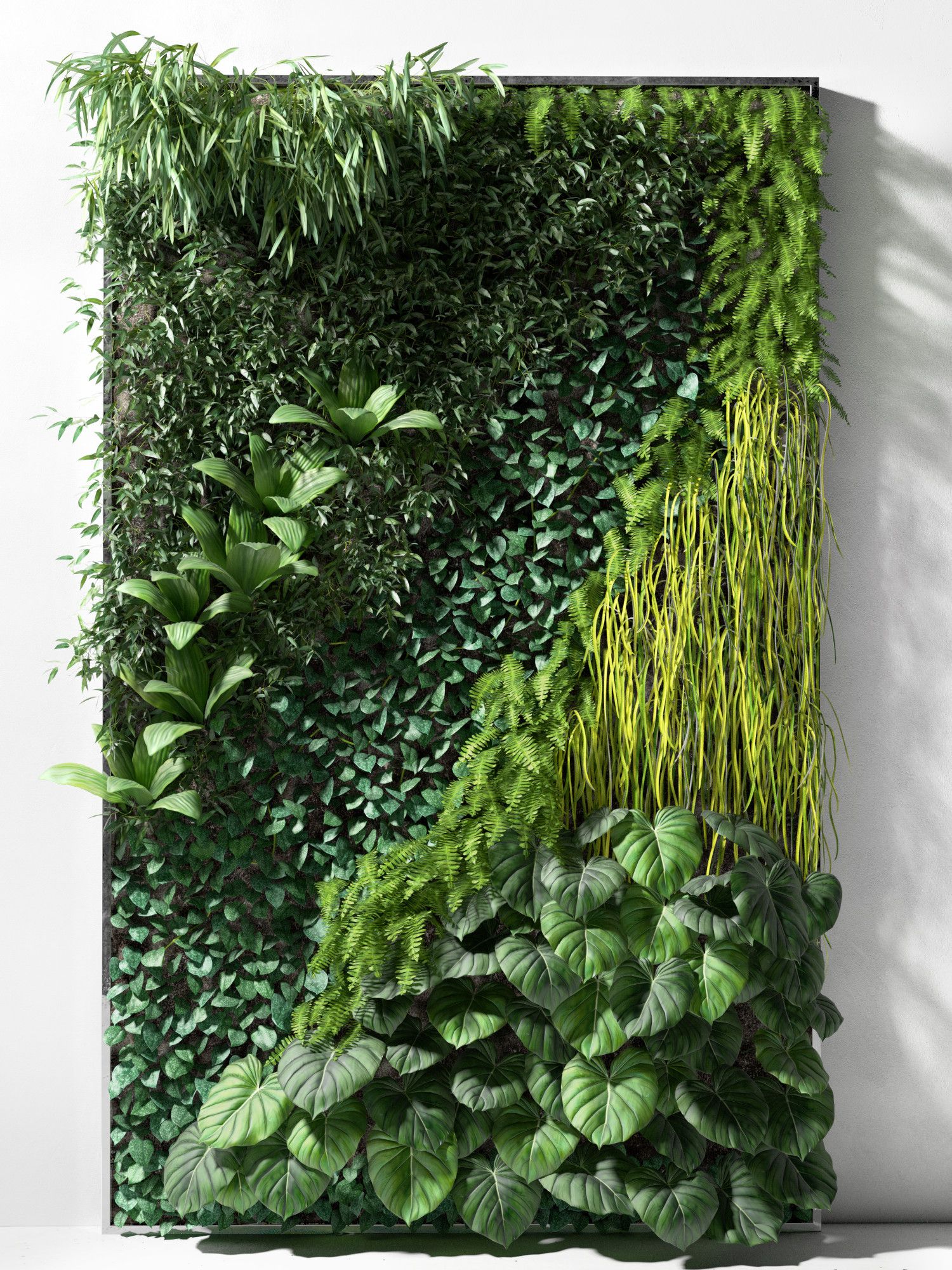
bentanji.com
Even better, vertical planters allow you to use forgotten areas in your outdoor area, like walls and fences. Plus, vertical gardening is one of the best space-saving garden ideas for small gardens. These can be as simple or elaborate and creative as you like as long as you ensure the plants get enough sunlight and water.
2. Start a Container Garden
Growing plants in containers is a great way to maximize garden space, even with limited resources. Planting container gardens can be a great alternative if you want to get into gardening, but your yard space needs to be bigger.
It may take longer than the traditional approach, but it’s worth the effort to admire nature fully in just a small area. You can even combine multiple plants in one container depending on their size and location; this is an aesthetically pleasing option, and it also helps support less-stable varieties of plants as they grow.
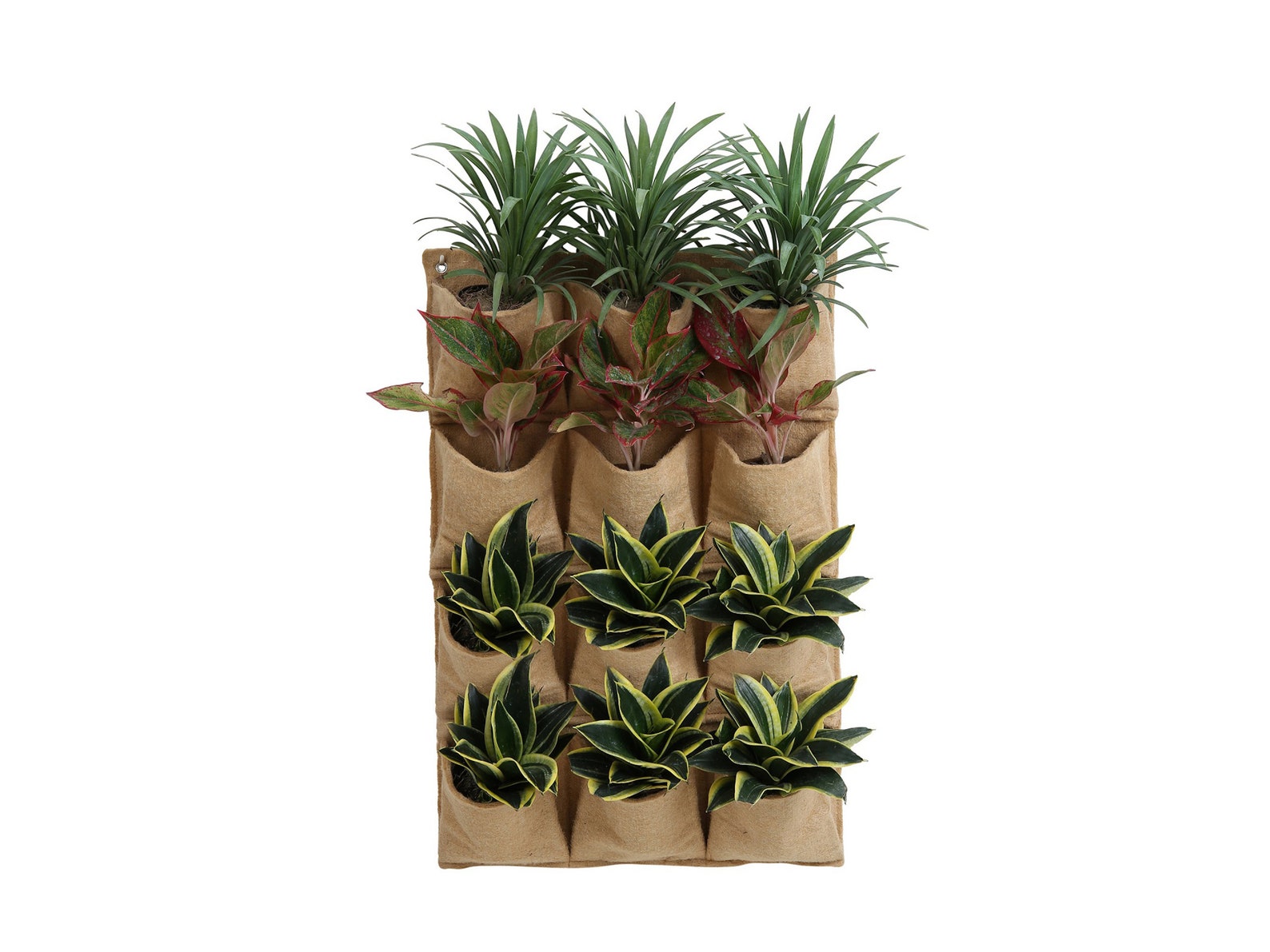
Hanging container holder via Etsy: JuteGardens
Starting a container garden can be made more efficient and sustainable using egg cartons. Repurpose them as seedling starters by cutting off the top lid and filling each compartment with soil. These biodegradable containers provide an ideal space for planting seeds and nurturing young plants before transferring them to larger pots or directly into the garden. The individual compartments also help prevent overcrowding and allow for easy transplanting. By utilizing egg cartons in your container garden, you maximize your garden space, reduce waste, and promote eco-friendly gardening practices.
3. Add an Arbor or Trellis for Climbing Plants
The beauty of a garden is in its vertical dimension, and adding an arbor or trellis is the perfect way to create a striking landscape. Climbing plants add life and vibrancy to any outdoor space, with their leafy growth covering surfaces to give your garden depth and texture.
This can be especially appealing if paired with trailing perennials planted around the base. A trellis also helps to provide a structure for plants to climb, making them easier to control and maintain.

Minimalist steel arbor via Etsy: ScreenDoorGrilles
4. Install Raised Beds
If you want to easily increase the size of your garden and make better use of your space, why not take an extra step and install raised beds? Not only do raised beds create more usable space, but they also make it easier for water drainage due to their depth.
Moreover, if you choose wisely when selecting materials for the bed, you can ensure that these structures last for years. You’ll be able to avoid weed growth, enjoy greater flexibility in managing the soil below, and benefit from a stronger crop rotation throughout the seasons.

Sustainably made wooden raised bed via Etsy: DeMeyerWoodcrafts
5. Plant in the Shade Areas
Rather than feeling discouraged about what can’t thrive in the shadows, use the situation by choosing plants that prefer light levels a bit lower than others.
Ferns and hostas are prime examples of shade-loving plants that bring lushness and vibrancy to a “difficult” space. You can pick from various styles—feathered or straight fronds, white margins on green leaves, tall or short heights — to craft your ideal shady look. Once properly established, these hardy perennials will come back year after year and provide lovely contrast in otherwise overlooked corners of the landscape.
Apart from ferns and hostas, mushrooms are one of the best options that can be planted in shaded areas. These fascinating fungi, like pink oyster mushrooms or lion’s mane, not only add a touch of enchantment to your garden but also offer an opportunity to make use of those shaded corners in a unique and sustainable way.

6. Incorporate Pathways
Adding pathways between different sections of your garden adds structure to it, but it adds character, too. It’s like bringing a theme or purpose—perhaps you desire to provide a zen-like escape.
You might choose winding pathways lined by relaxing plants that deflect noise and bright sunlight. If you wish to add some drama, use large flat stones with texture and varying heights as stepping stones; adding water along the way adds even more beauty and tranquility. To add visual interest, you could also design patterns or shapes around the paths.
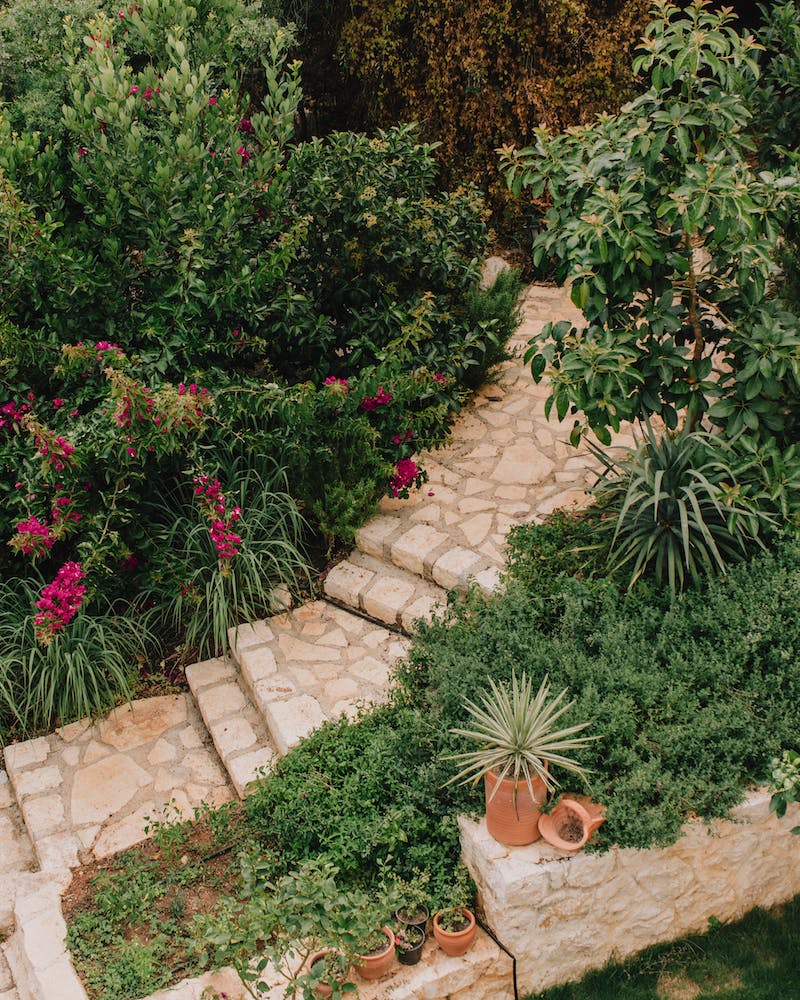
7. Create Focal Points
Creating focal points is the way to go if you want to add some pizzazz to your garden. Whether you choose a unique birdbath, pieces of furniture that coordinate with your outdoor décor, or interesting sculptures and statues, you can make your garden stand out by drawing attention to specific areas.
You can even purchase honey bees and hives and use them as focal points. Create your garden around these bees by planting vibrant flowers that attract pollinators and other bee-friendly necessities. Just make sure that when guests do come to visit, they don’t disturb any insects or birds that are in your garden.
These focal points are perfect for breaking up large spaces or establishing smaller seating and gathering areas. Adding them brings an extra layer of peaceful contemplation while strolling in your outdoor space.

Wooden set for potted vertical gardens via Etsy: Phatfielddesigns
Creating an aesthetically pleasing and functional garden can take time, but the reward is worth it. With the correct design elements, you will be well on your way to having an outdoor space you can enjoy for years. Look around your yard and imagine how you can use these design elements to make the most of what you have. Planning and creativity allow you to transform your outdoor space into a stunning, unique garden.





